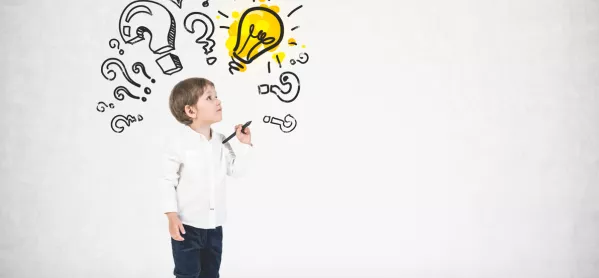- Home
- Covid has exposed how poor our scientific literacy is
Covid has exposed how poor our scientific literacy is

In the past six months, the general population has been bombarded with science, from virology to epidemiology. What is increasingly apparent to me, reading media reports and listening to the numerous vox pops on TV and radio, is that scientific literacy is not high in the population.
We have, for example, just learned that the trials run by Oxford University of a new coronavirus vaccine appears safe and may be able to “train” the immune system.
My concern is that people who are already antivaxxers will now start pushing conspiracy theories and bad science to try and discredit any coronavirus vaccine - and that the general populace will lack the scientific literacy to dispute them.
Science literate or scientifically literate?
People are not coping with coronavirus data, and their understanding of the science behind the coronavirus - its spread, transmission rates, etc - is lacking.
Many of these people appear science literate: they can happily quote you the data on infection rates, they can say that an R rate above one is bad, and some can quote quite impressive detail about the virus, such as its size.
But what is lacking is understanding. People do not seem to be very good at putting together the discrete facts they pick up, in order to create a logical argument that shows they have a good understanding of the issues.
And it’s not just the general public. Listening to politicians contradict themselves over the rules for lockdown and the easing of lockdown, it’s clear that their level of scientific literacy is also woefully lacking. They get that handwashing is important, that much is true, but as for the rest of it? Their response to the pandemic leaves a lot to be desired.
‘I’ve read the science’
The scale of the problem was brought home to me recently on Twitter (where else?). A person - a DJ by profession - was arguing that wearing a mask was no good to anybody. He had read lots of other people’s views on mask-wearing and had concluded that they were a complete waste of time.
He’d “read the science”, he said. He knew that the average size of the coronavirus was 0.1 microns. “Guess what,” he said. “The weave of any mask, even an N95 medical-grade mask” - yes, he knew that was different from a B&Q dust mask - “wasn’t close enough to prevent the particles getting through and infecting you.”
I won’t bore you with the full exchange, but I politely pointed out that he was missing some crucial elements in his carefully constructed slam-dunk argument as to why he shouldn’t wear a mask. He’d missed the bit where the virus was carried within water droplets, which could be trapped (not 100 per cent, obviously) by a mask, or even a cloth covering, and that this on its own reduces transmission.
He had missed the bit where, if more people wear masks, the overall transmission rate drops. He had missed the fact that the virus had no means of locomotion, so wouldn’t crawl through these spaces and into your mouth or nose.
The DJ told me that I was clearly stupid and didn’t understand the science: he’d said, more than once, that the particle was too small and would get through the mask anyway.
It took a while - a few hours - but, eventually, he began, slowly, to get it. One fact about the virus - its size - was not enough to create a robust argument for not wearing masks. There were many other factors he needed to know about.
What is science education for?
This encounter set me thinking about whether or not we are succeeding in science education if all we are doing is feeding young minds with discrete facts.
Are we not paying enough attention to how these facts are then combined and used, to create coherent arguments and an understanding that is useful to us as a society?
At present, we are good at creating young people who are science literate: they learn facts about science, and they learn how to use these facts to answer specific questions. But we are not creating young people who are scientifically literate: who can use science to explain natural phenomena.
Do they understand that scientific knowledge, while durable, is also tentative and subject to change? Can they create rational arguments from the knowledge they have acquired? And are they able to be sceptical, and ask the right questions when presented with new “scientific” knowledge? Can they separate the science from the pseudoscience? In short, do they understand the nature of science?
We need to think about our science curriculum and the purpose of a good science education. It’s not enough just to fill people with facts and teach them how to do experiments. Science is so much more than that.
The teaching of scientific knowledge must be the firm foundation on which the rest is developed. Of course, you cannot construct logical arguments or even see the flaws in the arguments of others without a good knowledge base. But perhaps we are teaching too broad a base of scientific knowledge, and we are trying too hard to cover all the sciences.
Instead, we may be better off teaching less knowledge, but then using that knowledge to develop scientific literacy, as well as science literacy and practical skills.
Dr James Williams is a senior lecturer in education at the School of Education and Social Work at Sussex University. One of his main areas of research is science teachers and their understanding of the nature of science
Keep reading for just £1 per month
You've reached your limit of free articles this month. Subscribe for £1 per month for three months and get:
- Unlimited access to all Tes magazine content
- Exclusive subscriber-only stories
- Award-winning email newsletters



